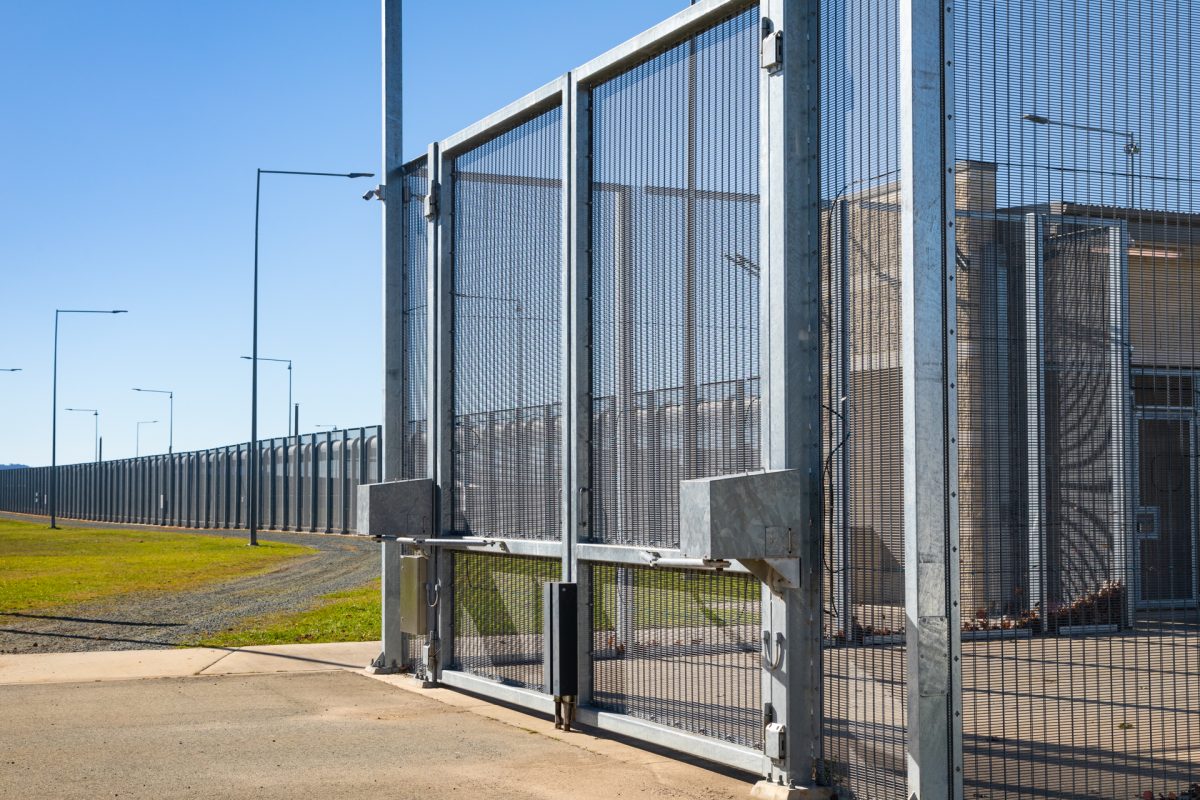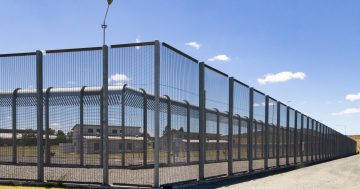
The government has provided its response to the second Healthy Prison Review of the Alexander Maconochie Centre. Photo: Michelle Kroll.
The ACT Government has defended operations at the Alexander Maconochie Centre (AMC) after the second Healthy Prison Review slammed the prison for being past its “use by date” and questioned its management of detainees.
Corrections Minister Mick Gentleman provided the government’s response to the report, noting much of the data used for the 2022 report was gathered in 2021 and so didn’t fully acknowledge some of the “significant” work that had been underway by the time the review was published.
“It was reassuring for me to hear from the ACTCS [ACT Corrective Services] Commissioner that there were no surprises in the results and that ACTCS had already identified or started to address many of these recommendations,” he said.
“I would like to note that despite the Inspector’s position that overall, conditions have declined since the 2019 Healthy Prison Review, progress is being made that was not recognised in this report, largely due to the use of 2021 data and the point in time of 30 June 2022 used for the report.
“I am confident that ACTCS will continue to devote themselves to implementing the recommendations of the Healthy Prison Review.”
The review made 63 findings and 29 recommendations, focused around safety, respect and dignity, purposeful activity, and rehabilitation and preparation for release.
The ACT Government’s response noted it agreed to nine recommendations, five of which had already been completed. It agreed in principle to another nine recommendations, one of which has been completed, and noted a further nine recommendations that it felt sufficient work had already occurred to address the issues and so further action wasn’t needed at this time.
Many of the recommendations required the review or engagement of additional services, programs or supports, with Mr Gentleman stating ACTCS had implemented an Integrated Offender Management Framework that includes a restructuring of supports for detainees with mental health needs and efforts to provide greater access to rehabilitative programs.
Two additional activities officer positions were filled in January, and a full-time senior education officer was brought on to better support distance education students in the prison.
Recommendations already completed included a new x-ray body scanner operation procedure, the completion of works to expand and refurbish the Hume Health Centre at the prison, and a change in the way medication is transported around the centre.
A new Aboriginal-identified cultural services senior director has also been employed for six months, pending permanent recruitment expected to occur shortly.
Other progress includes the recent introduction of induction videos and products in easy English formats and changes to increase detainee privacy when requesting self-referrals to Justice Health Services, while ACTCS is also looking into options to expand the use of telehealth for specialist consultations.
Mr Gentleman said other recommendations fell under broader plans already being considered, such as infrastructure-related recommendations around expanding women’s accommodation, a new multi-purpose industries building and expanding the visits areas.
“While the ACT Government agrees there is likely a need to expand these areas, the planning and development initially requires an analysis of need and use, which will be undertaken as a part of broader planning,” he said.
However, two recommendations were not agreed to by the ACT Government.
The first was for ACTCS to define what a ‘cohort’ was at the AMC and develop a strategy to reduce the number of cohorts so that more detainees could mix for instances such as programs, visits and recreation.
It said the definition should be based on minimising rather than avoiding every possible risk.
The ACT Government did not agree.
“Limitations on detainee’s ‘mixing’ exist to maintain safety, security and good order,” the government’s response stated.
“The circumstances and assessments made of detainee behaviour and classification are subject to change over time, which is then reflected in operational decisions concerning which detainees can ‘mix’.”
The second rejected recommendation was for ACTCS to report publicly on a quarterly basis on the current occupancy of the Transitional Release Centre and Transitional Release Program against capacity, which the inspector wanted to have started by January of this year.
The report found the average occupancy of the centre between January 2020 and September 2022 (noting it was closed between May 2021 and April 2022) was 2.3 people, meaning 88 per cent of its capacity wasn’t used.
“Although COVID-19 posed significant challenges, the squandering of this important reintegration facility cannot be attributed to COVID-19,” it stated.
Mr Gentleman said while the government recognised this would promote transparency, it didn’t agree this would solve the issues raised in the report.
“The recommendation will not improve either the number of detainees eligible for the program or the program uptake and reporting already occurs regularly through various hearings across the year,” he said.
Despite these criticisms, overall ACTCS welcomed the findings and recommendations from the review.





















